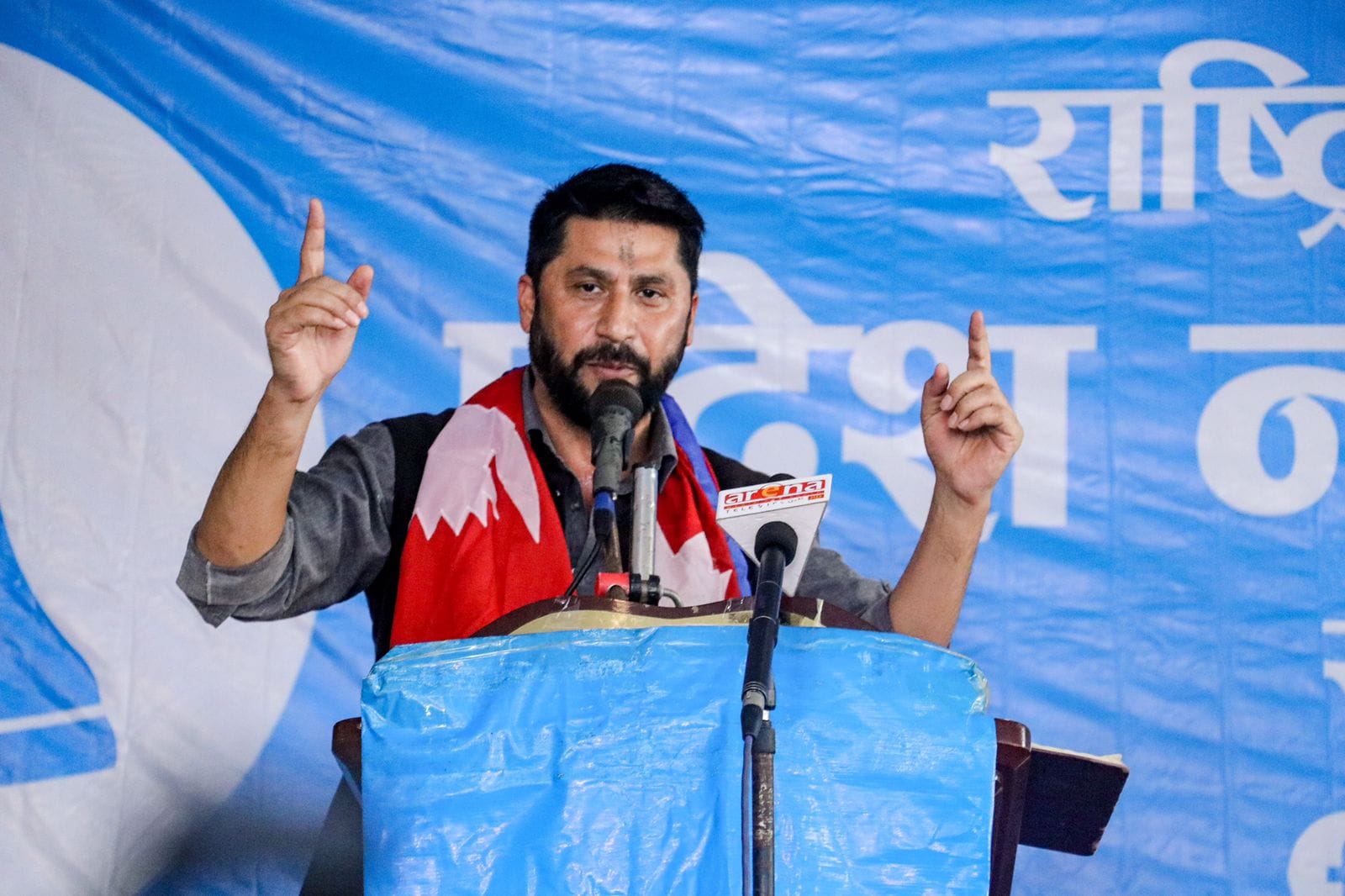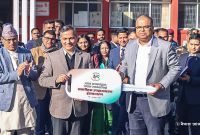RSP’s Bold Gamble: Court and Media Trials to Politicize Ravi Lamichhane’s Criminal Case!

Ravi Lamichhane, the chairman of the Rastriya Swatantra Party (RSP), former Deputy Prime Minister and Home Minister of Nepal, and a former U.S. citizen, was arrested on Kartik 2 (October 18, 2024) in connection to a major cooperative fraud scandal. The case involves the embezzlement of funds from the Suryadarshan Cooperative in Pokhara, where over 18,750 depositors lost their life savings. The investigation has implicated Lamichhane, along with former Deputy Inspector General (DIG) Chhabilal Joshi, and other associates. Some of the key figures like GB Rai, suspected to be involved, remain at large.
Following Lamichhane’s arrest, his party, RSP, launched a series of protests in Pokhara, escalating the already tense environment. These protests, framed by the RSP as a "road revolution," have placed considerable pressure on both law enforcement and the judiciary, with the implicit intent to influence ongoing investigations and judicial decisions. The RSP's aggressive demonstrations have raised questions about their strategic objectives—whether they are a genuine expression of political dissent or a calculated move to exert undue pressure on the legal process.
The Strategy Behind the Protests
RSP's protests, especially in Pokhara, appear to be more than mere demonstrations of public dissatisfaction. The underlying strategy seems to focus on creating a charged atmosphere that would put pressure on both the police and the courts. Since Lamichhane’s arrest, RSP cadres have taken to the streets in large numbers, blocking roads, chanting slogans, and creating a volatile environment. The protests, while peaceful at first, have grown increasingly confrontational, with the police resorting to force to maintain order and prevent further escalation. The situation in Pokhara is tense, with authorities constantly on alert to prevent the situation from spiraling out of control.
The timing and intensity of the protests are particularly concerning because they appear to coincide with key moments in the judicial process. For instance, after Lamichhane’s arrest, tensions in Pokhara rose sharply as RSP supporters, instead of waiting for the investigation to proceed, took to the streets, demanding his immediate release. This raises an important question: Is it wise to protest against the investigation of a criminal case?
Protests vs. Rule of Law
From a legal standpoint, protests aimed at influencing criminal investigations go against the very principles of justice and the rule of law. Investigations, especially those involving allegations of serious crimes like cooperative fraud, money laundering, and forgery, must be conducted independently and free from external pressure. The legal principle here is that the police and courts should be able to conduct investigations without fear or favor, ensuring that justice is served impartially.
However, Lamichhane and his supporters have taken a different approach. Even while in police custody, Lamichhane has publicly called for more protests, portraying his arrest as politically motivated and attempting to galvanize public opinion against the government. This raises concerns about the fairness of the legal process, as such public displays of dissent could potentially sway the opinions of investigators, prosecutors, and even judges.
The Legal Principle of a Fair Investigation
Criminal investigations are governed by the rule of law, which dictates that all individuals, regardless of their social or political standing, are equal before the law. The principle of legal neutrality ensures that investigations are carried out based on evidence and facts, not on public sentiment or political pressure. In this case, the police are under tremendous pressure to conduct a thorough investigation while also managing public unrest instigated by the protests.
The charges against Lamichhane are serious. He, along with his associates, is under investigation for violating the Money Laundering Act, Organized Crime Act, and Forgery Act. These laws are designed to address serious financial crimes and ensure that individuals who embezzle or misuse public funds face legal consequences. According to Kaski SP Shyambabu Olio, further investigations are being conducted into Lamichhane’s involvement in the Suryadarshan Cooperative scandal. Despite Lamichhane’s claims that he was not involved in any fraudulent activities, investigators are looking into evidence that suggests otherwise.
Two of his associates, Chhabilal Joshi and Kumar Ramtel, have already been detained in connection to the scandal, and further investigations are underway. The case is complex, with investigators uncovering significant evidence linking Lamichhane to fraudulent activities. While the parliamentary cooperative investigation committee did not find direct evidence of his involvement in mismanaging the funds, there are allegations that he played a role in facilitating the embezzlement.
The Role of the Police and Judiciary
In light of the RSP’s protests, the role of the police and judiciary becomes even more critical. The police are tasked with maintaining law and order while ensuring that the investigation is not compromised. Their use of force to disperse protesters is a reflection of the need to balance civil liberties with the safety of the public and the integrity of the investigation.
On the judicial side, the courts must ensure that Lamichhane’s case is heard fairly and without bias. The tension created by the protests and the political pressure from RSP could potentially create an atmosphere where judicial decisions are scrutinized not just for their legal merits but also for their political implications.
Conclusion: A Conflict of Legal and Political Interests
The ongoing protests and media trials being orchestrated by RSP in response to Ravi Lamichhane’s arrest present a complex interplay between legal processes and political strategies. While political parties have the right to protest, using public demonstrations to influence the outcome of an ongoing criminal investigation is a dangerous precedent. It threatens the impartiality of the justice system and undermines the rule of law.
As the investigation into Lamichhane’s involvement in the Suryadarshan Cooperative scandal continues, it is crucial that the police and courts are allowed to carry out their duties without interference. Political figures like Lamichhane should be held accountable through legal channels, not by leveraging public sentiment or creating an atmosphere of tension. If found guilty, Lamichhane could face a minimum sentence of seven years in prison, a penalty that reflects the seriousness of the charges against him. The path forward must be one of justice and legal integrity, not one dictated by political gamesmanship.
Ravi Lamichhane




![From Kathmandu to the World: How Excel Students Are Winning Big [Admission Open]](https://nepalaaja.com/img/70194/medium/excel-college-info-eng-nep-2342.jpg)


